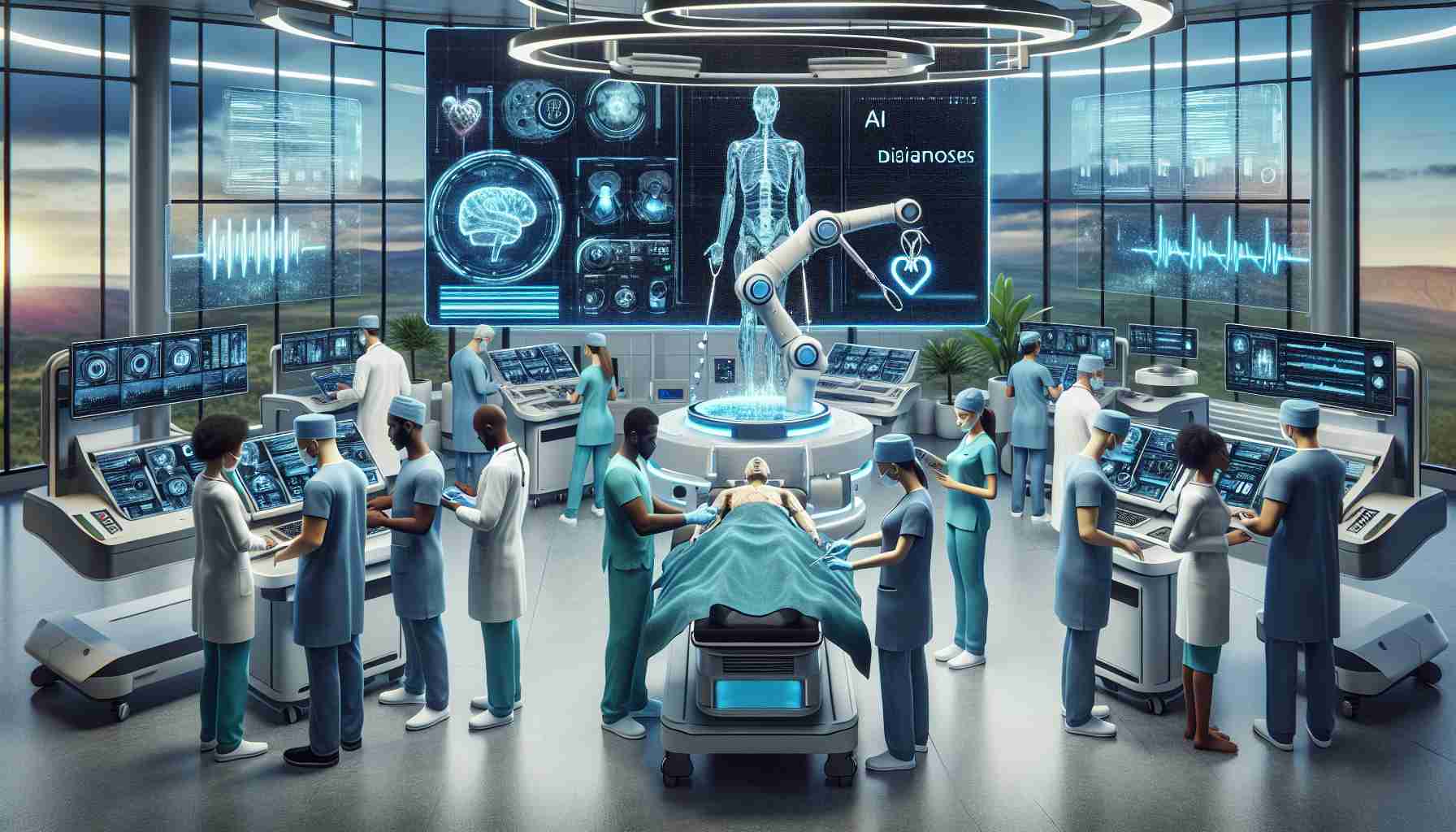Revolutionizing Patient Care with AI
Artificial intelligence (AI) is transforming the healthcare landscape by accelerating and enhancing services traditionally performed by humans. From mining genetic codes for novel insights to propelling surgical robots, AI is enabling faster, less expensive, and more precise medical services. Innovations in technology are rapidly leading to better diagnostic accuracy, streamlined administrative workflows, and highly personalized treatment options, improving the quality of care while reducing costs.
The Multi-Faceted Impact of AI in Medicine
AI’s application in healthcare is diverse, encompassing everything from assisting with surgeries to simplifying administration and personalizing care regimens. Robots, which have been in use for over three decades in various medical capacities, are now aiding rehabilitation, physiotherapy, and chronic illness management in a more sophisticated and integrated manner. By understanding daily patterns and patient needs, AI allows healthcare professionals to provide enhanced guidance and support, making health management more effective for everyone involved.
Accelerating Drug Discovery and Training
In the pharmaceutical industry, the journey from lab to patient is long and costly. However, AI is on the verge of drastically reducing this timeline and the associated financial burden. By applying advanced AI algorithms, the processes of drug discovery and repurposing have the potential to be more efficient, significantly cutting the costs and development time. Additionally, AI is advancing medical training through realistic simulations that enrich learning experiences beyond what traditional computer-driven algorithms can provide.
Enhanced Radiology and Professional Responsibility
In radiology, AI is bridging the gap between patient and practitioner, automating and simplifying communication. Despite advancements, AI is not replacing the empathetic and socially intelligent human element crucial for treatment decisions. Furthermore, the question of liability in AI-driven healthcare decisions remains a subject of legal and ethical debate.
Consumer Perspectives on AI in Healthcare
Internationally, there is a consensus among consumers on the potential benefits of AI, including diagnostic accuracy and improved access to care. While these advantages are largely prospective, there is a conditional acceptance among the public, who express significant concerns about accountability and the possibility of AI errors. Consumers advocate for human oversight to ensure protection from harm and insist on maintaining the irreplaceable human qualities of empathy and care in patient interactions.
AI-Enhanced Diagnosis and Predictive Analytics
Artificial intelligence brings a significant boost in diagnostic capabilities, with machine learning models able to analyze complex medical data and imaging results at incredible speeds and with accuracy that often surpasses human performance. Furthermore, predictive analytics powered by AI can anticipate potential health risks and outcomes, leading to earlier interventions and personalized care plans.
AI and Remote Patient Monitoring
Remote patient monitoring (RPM) technologies leverage AI to provide continuous care and real-time data analysis for patients outside of traditional healthcare settings. This is especially important for chronic disease management and for elderly populations who may have mobility issues, allowing for proactive treatment adjustments and early detection of complications.
Challenges and Controversies in AI Healthcare Integration
Key Challenges:
– Data Privacy and Security: There are significant concerns regarding the safeguarding of sensitive health information with AI systems, as they require massive datasets for training and can be vulnerable to cyber attacks.
– Regulatory and Ethical Issues: AI in healthcare must navigate a complex landscape of regulations that vary by country and region, and there are ongoing ethical discussions about consent, transparency, and the moral implications of algorithm-based decisions.
– Interoperability: The lack of standardized frameworks for data exchange can hinder AI systems’ ability to integrate with various healthcare IT systems, which is crucial for comprehensive patient care.
Controversies:
– AI Decision-Making Boundaries: There is contention over how much decision-making should be delegated to AI, especially in critical healthcare scenarios where human judgment is traditionally valued.
– Workforce Displacement: There is concern that AI could displace healthcare jobs, though others argue that it will augment medical professionals rather than replace them.
Advantages:
– Precision and Speed: AI can process and analyze health data far more quickly and accurately than humans, leading to faster and potentially more precise diagnoses.
– Cost Reduction: By automating various aspects of care, such as diagnostics, treatment planning, and administrative tasks, AI has the potential to significantly reduce healthcare costs.
– Accessibility: AI can help make healthcare more accessible by providing diagnostic and treatment support in remote areas and reducing the need for patients to travel for specialized care.
Disadvantages:
– Black Box Algorithms: Many AI systems operate as ‘black boxes,’ with decision-making processes that are not transparent to users, leading to issues with trust and accountability.
– Limited Generalizability: AI models may perform well in controlled environments but can struggle with handling the variability and complexity of real-world applications.
– Dependency on Quality Data: AI is highly dependent on the availability of large, high-quality datasets for training, which can be challenging to obtain due to privacy issues and data silos.
For further reading and information, here are some suggested related links:
World Health Organization – Global health information and guidelines, including digital health resources.
U.S. Food and Drug Administration (FDA) – Information on regulatory processes that could impact AI in healthcare.
Nature – Scientific articles that often cover the latest research in AI and healthcare applications.
Institute of Electrical and Electronics Engineers (IEEE) – A resource for standards and publications on AI technology, which often pertain to healthcare innovations.

